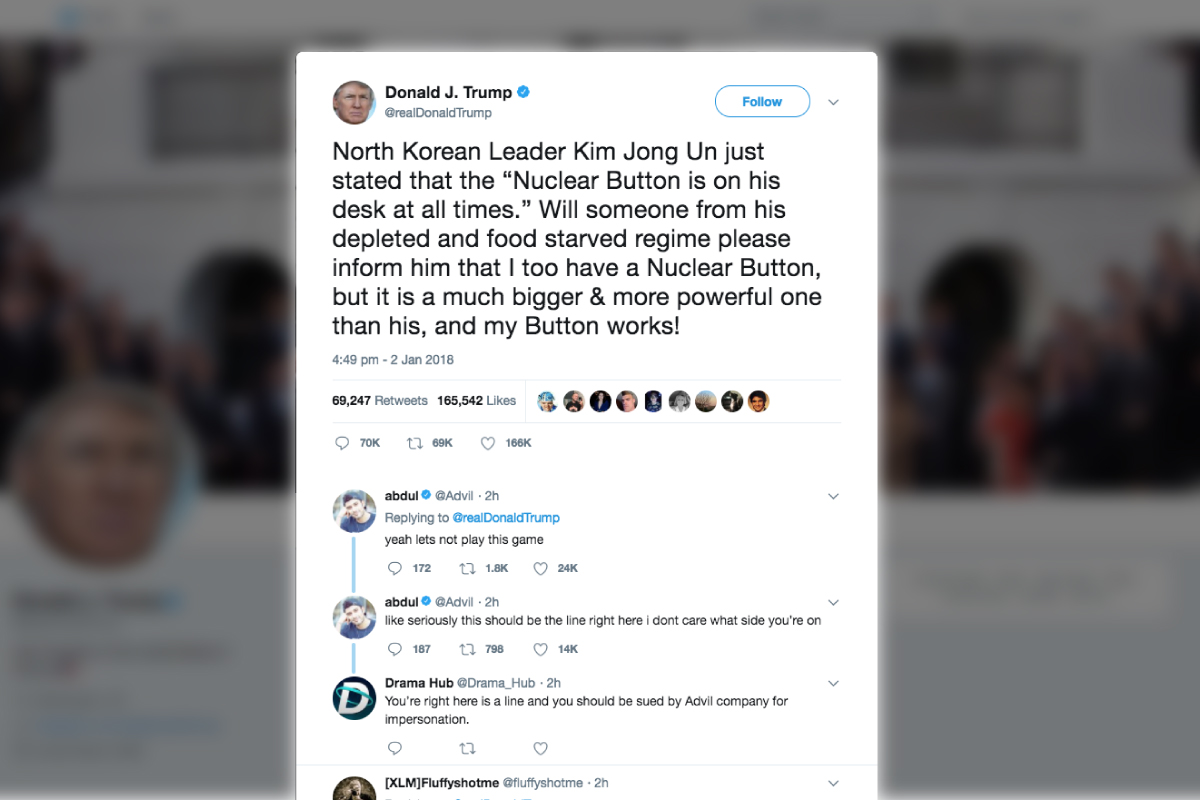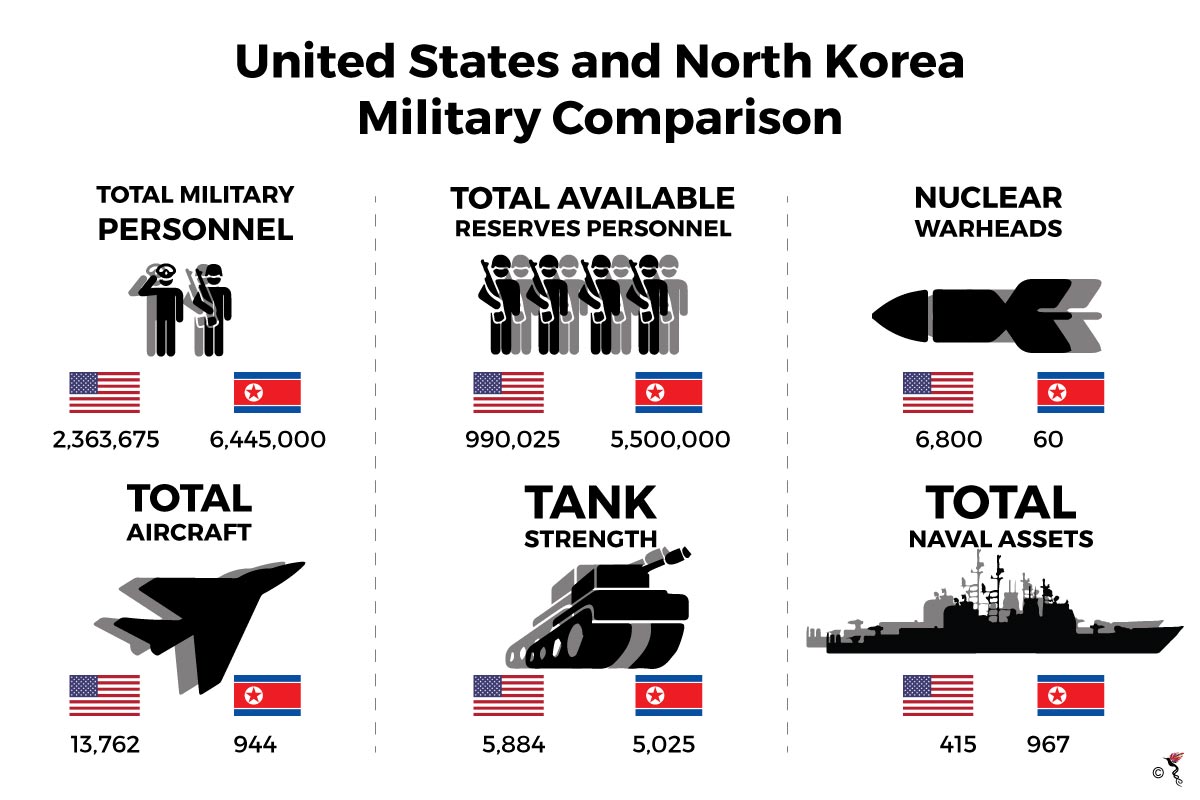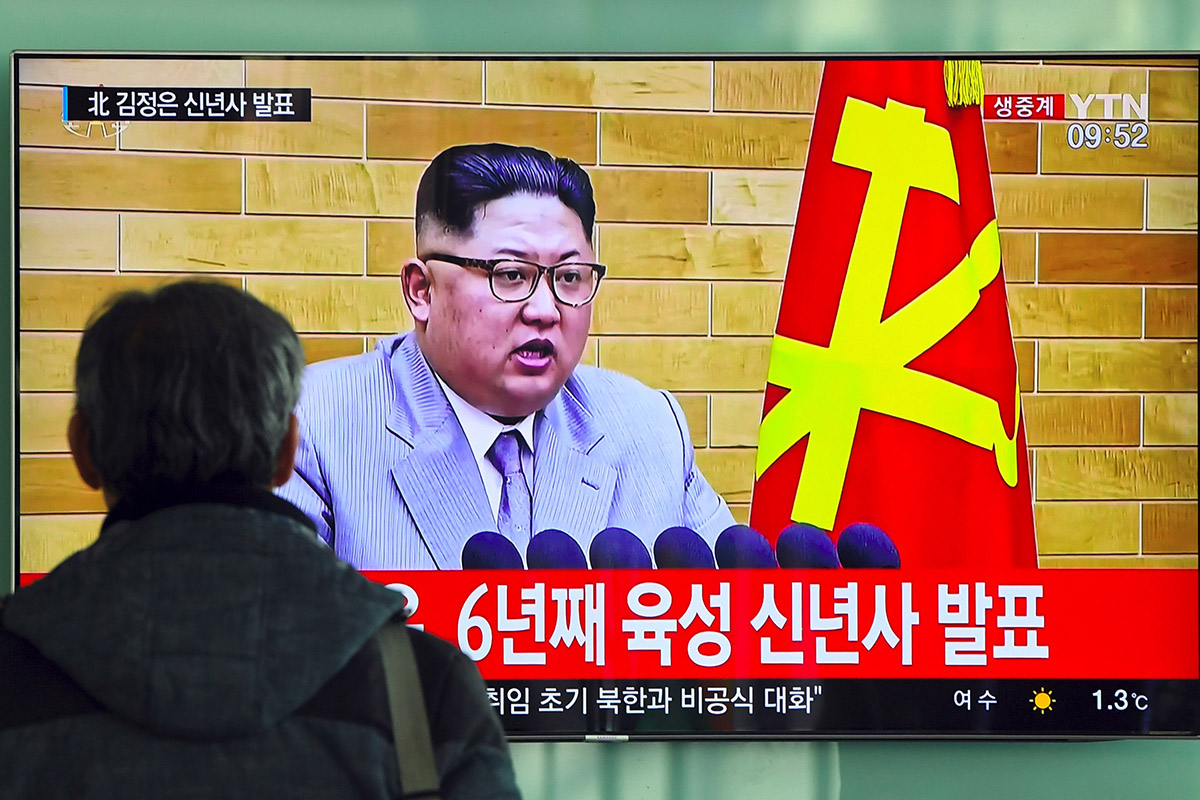North Korean authoritarian leader, Kim Jong-Un, in a New Year address, warned that he had a “nuclear button” on his desk. In response, United States (US) President Donald Trump tweeted that he has his own nuclear button on his table that is “bigger and more powerful.”

Does it really matter?
Yes and no. Yes, it does matter that North Korea has nuclear weapons and if it will deploy those weapons against its enemies like the US or Japan. But, no – it doesn’t matter if either power has a “bigger” button that they can press and initiate nuclear destruction. If the world is destroyed, its safe to say that everyone loses.
This calls into question, Pyongyang’s intentions with its nuclear weapons. If one thing is made most clear now, it is that the hermit kingdom’s nuclear ambitions serve as a deterrent to foreign powers and as a bargaining chip to use at the talking table. Recently, Kim Jong-Un has expressed his interest in dialogue with South Korea and even proposed for North Korea to join the Winter Olympics happening in Pyeongchang, South Korea next month.
In response, South Korea has welcomed the prospect of discourse and proposed high-level talks with Pyongyang on the 9th of January.
South Korea's unification minister Cho Myoung-Gyon told a press conference that Seoul was "reiterating our willingness to hold talks with the North at any time and place in any form".
"The government proposes to hold high-level government talks with North Korea on January 9 at the Peace House in Panmunjom," Cho said, referring to a truce village on the border between the two Koreas.
"We hope that the South and North can sit face to face and discuss the participation of the North Korean delegation at the Pyeongchang Games as well as other issues of mutual interest for the improvement of inter-Korean ties."
The Koreas – divided by a Demilitarised Zone since the end of the 1950-53 Korean War – last held high-level talks in 2015 to try to ease tensions.
Those talks failed to reach an agreement.
‘A groundbreaking opportunity for peace’
South Korean President Moon Jae-In, who has long favoured engagement to ease tensions with the North, earlier Tuesday welcomed Kim's suggestion of an opportunity for dialogue.
However, he indicated that improvements in ties must go hand in hand with steps towards denuclearisation of the North.
Kim's comments on Monday were the first indication of North Korea's willingness to take part in the Winter Games from February 9-25.
Moon called them a "positive response" to Seoul's hopes that the Pyeongchang Olympics would be a "groundbreaking opportunity for peace" and urged officials to come up with measures to realise the North's participation.
Beijing, Pyongyang's main ally, welcomed developments.
"We support the two sides in taking advantage of this opportunity to make concrete efforts to improve bilateral ties... and realise the denuclearisation of the peninsula," said Chinese foreign ministry spokesman Geng Shuang.
Washington considers China key to a resolution of the crisis and has asked Beijing to do more to rein in Pyongyang.
Sanctions ahead of engagement
Trump has never completely dismissed a military option in facing North Korea, but his preferred “weapon of choice” to use against the regime for now, remains to be sanctions that have been grudgingly supported by Russia and China – two key allies of Pyongyang. Last year, the US spearheaded the international push to sanction North Korea at the United Nations – slapping three rafts of economic sanctions on the regime, targeting its oil, coal, iron, fisheries and textile sectors.

"Just the fact that they are meeting will be meaningful because it signals an attempt on both sides to improve relations," said Koh Yu-Hwan, a political science professor at Dongguk University, in reference to proposed talks by the South Korean unification minister.
But once they sit down, the North could put Seoul in a difficult position by making unacceptable demands such as an end to its annual joint military drills with the United States, Koh added.
"What North Korea is trying to do is re-establish its relations as a nuclear state (with Seoul). The South's dilemma is whether we can accept that."
But what has been made crystal clear is that the US will never accept Pyongyang as a nuclear state. As it stands, the Washington has eschewed engaging with Kim’s regime until and unless it completely abandons its nuclear ambitions.
Responding to Seoul's offer of high-level talks with Pyongyang, Ambassador Nikki Haley told reporters: "We won't take any of the talks seriously if they don't do something to ban all nuclear weapons in North Korea."
"We consider this to be a very reckless regime. We don't think we need a band-aid and we don't think we need to smile and take a picture.
"We think we need to have them stop nuclear weapons and they need to stop it now," she said, warning: "We will never accept a nuclear North Korea."
In response to reports that Pyongyang may be preparing another missile test, Haley warned any such move would expose Kim's regime to further sanctions.
"I hope that does not happen. But if it does, we must bring even more measures to bear on the North Korean regime."
Additional reporting by Agence France Presse (AFP)
Recommended stories:
